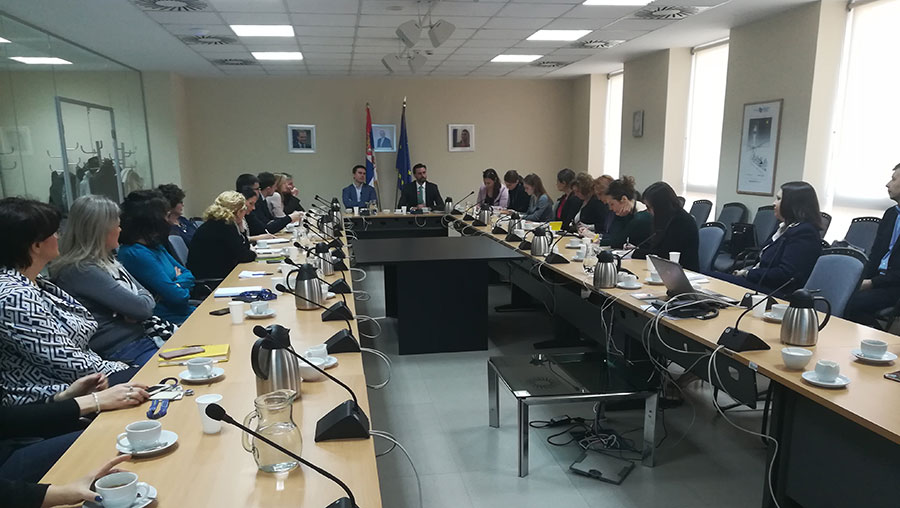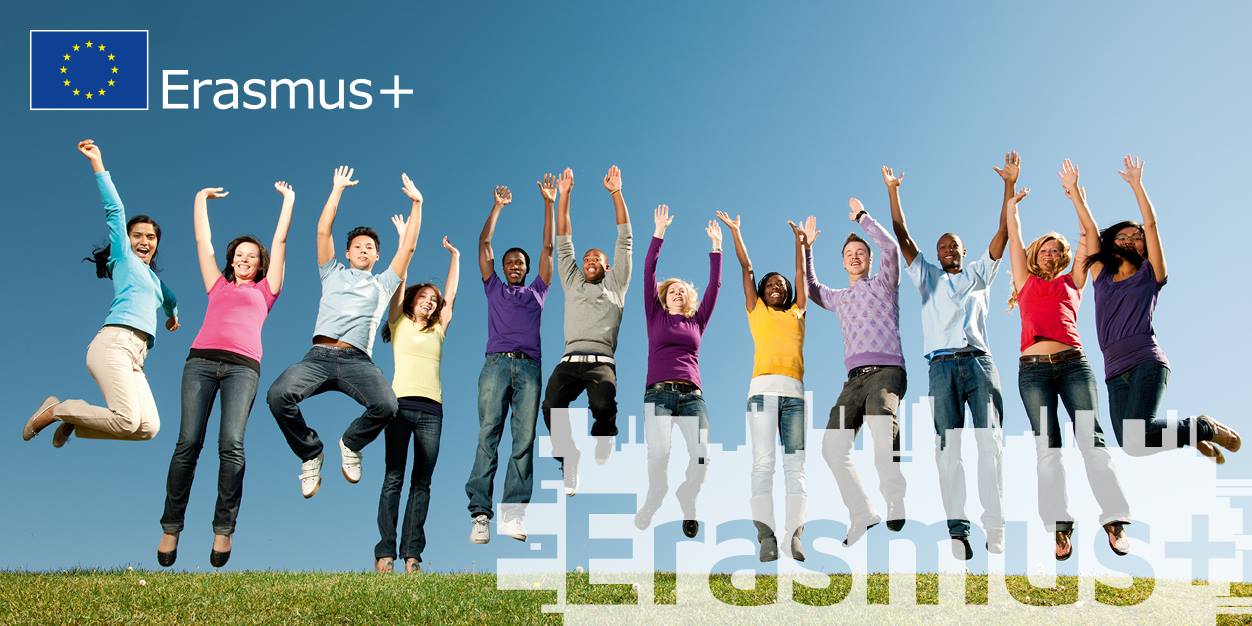The Erasmus+ programme is best known in Serbia as an initiative that supports young people from Serbia to study in countries of the European Union and around the world, but it also offers a number of other opportunities for cooperation between individuals, organizations and educational institutions, was stated today at the premises of the Delegation of the European Union to Serbia (EUD). Presently, calls for proposals are currently open for certain sub-components of the programme, while the next cycle (for year 2020) is expected to be opened in October 2019.
In February 2019, Serbia became a full-fledged program country within the Erasmus+ programme. It is the largest program of the European Union in the field of education, youth and sports. A large part of the program covers the exchange of students and teaching staff, but there are other projects in the field of youth organization, as well as sports, which aims to support dual career development of elite athletes and promote sports values. The programme supports the policies of the European Union envisaged by the Education and Training Strategy through 2020.
The deadline for applications are usually due at the beginning of the year (in February and April), while exceptions include calls for cooperation in the field of youth and sports that open in October, announced the National Agency for the Erasmus+ programme in Serbia. Yesterday, an info day was organized for the sports component of the programme, stated Marija Filipovic Ozegovic, Manager of the Tempus Foundation, which is the National Agency responsible for overseeing the program in Serbia.
 During 2018, over 3,000 individual mobility applications were approved, out of which more than 1,800 young people from Serbia went to study abroad in other countries, while around 1,200 foreign students attended courses, trainings and/or studies in Serbia, according to the Tempus Foundation. Interestingly, cites the foundation, Spaniards often come to study at the programmes offered by the University of Kragujevac, which indicates that Erasmus+ is not only tied to Belgrade, Novi Sad and/or Nis. Currently, 111 schools are participating in various projects, many of them for the first time.
During 2018, over 3,000 individual mobility applications were approved, out of which more than 1,800 young people from Serbia went to study abroad in other countries, while around 1,200 foreign students attended courses, trainings and/or studies in Serbia, according to the Tempus Foundation. Interestingly, cites the foundation, Spaniards often come to study at the programmes offered by the University of Kragujevac, which indicates that Erasmus+ is not only tied to Belgrade, Novi Sad and/or Nis. Currently, 111 schools are participating in various projects, many of them for the first time.
As part of the the Erasmus+ programme, there are also various networks for forging connections with the academic community. The e-twinning platform connects teachers from different countries, and there are over 3000 teachers from Serbia listed on the platform, which positively contributes towards improving teachers’ competencies and skills, and represents an opportunity for cooperation, linking subjects and introducing new teaching projects. The EPALE Network, an e-platform, is intended for improving adult learning in Europe, which enables the community to exchange experiences. The Euroguidance platform is designed for practitioners offering professional guidance and career planning.
The Erasmus+ programme promotes the values of the European Union, primarily freedom of movement, concluded Head of Operations II of the EU Delegation (EUD) Steffen Hudolin.
“I congratulate Serbia on becoming a candidate country, this is a big step for Serbia. Thanks to the new status, new opportunities for participation have opened for individuals, organizations and institutions. Erasmus+ is a true success story in Serbia,” stated Hudolin.
In line with the European Union’s Western Balkans Strategy, Education and Youth Project Manager at the EU Delegation Irena Radinovic said that the financial perspective for the period following 2021 envisages a doubling of the budget and the number of users of the Erasmus+ programme, which is why there will be even more opportunities for mobility and cooperation ahead.




